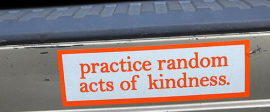Faith in the Workplace: Resting in God (Mark 2 and Genesis 1 Sermon Notes)
Sermon Notes / Produced by The High Calling
Scripture
Mark 2:27-3:1-6
Then he said to them, “The Sabbath was made for humankind, and not humankind for the Sabbath; so the Son of Man is lord even of the sabbath.” Again he entered the synagogue, and a man was there who had a withered hand. They watched him to see whether he would cure him on the sabbath, so that they might accuse him. And he said to the man who had the
withered hand, ‘Come forward.’ Then he said to them, ‘Is it lawful to do good or to do harm on the sabbath, to save life or to kill?’ But they were silent. He looked around at them with anger; he was grieved at their hardness of heart and said to the man, ‘Stretch out your hand.’ He stretched it out, and his hand was restored. The Pharisees went out and immediately conspired with the Herodians against him, how to destroy him.
Genesis 1:31-2:3
God saw everything that he had made, and indeed, it was very good. And there was evening and there was morning, the sixth day. Thus the heavens and the earth were finished, and all their multitude. And on the seventh day God finished the work that he had done, and he rested on the seventh day from all the work that he had done. So God blessed the seventh day
and hallowed it, because on it God rested from all the work that he had done in creation.
Theme: Our hearts are restless until they find their ultimate rest in God.
Introduction
One of my favorite phrases is “Shabbat Shalom.” It is an invitation to Sabbath peace, wholeness, renewal, and health—of body, mind and soul. Over many years of serving as a pastor, this is the overwhelming desire I have heard from parishioners. “How can I live a more integrated life? There are so many things pressing on my time and energy, how do I balance work, rest and play in ways that are faithful to God, my family, my church, and my community?”
One of the primary ways we can find this balance in life is coming to a new understanding of Sabbath-keeping. Sabbath is both a gift we should receive with grateful hearts and a command we should obey. It’s a gift because many Christians receive Sabbath on the first day of the week, before we’ve done anything to earn it! On the “Lord’s Day”—Sunday—we remember and celebrate the resurrection of our Lord. Sabbath is a gift given to us by God before we have done anything to earn it, and Sabbath is also a command. It is the fourth of the 10 Commandments and serves as the “bridge” commandment between the commands to love God (the first three) and the commands to love the neighbor (the final six). The Sabbath commandment ties these together because it relates to both sets: how we properly love and worship God as well as how we relate to the larger community (see the discussion of Deuteronomy 5 below). The gift and the command belong together, so we make it a priority but do not experience it as a rigid rule that becomes a burden.
UNPACKING THE SCRIPTURE
In the Bible, the Ten Commandments are found in both Exodus and Deuteronomy. In Exodus 20, the Sabbath commandment is linked to Creation. After six days of creating the world, God stops working, looks back over all He has made and says: “What I’ve done is VERY good. I should rest now.” God pauses and reflects because He wants to take pleasure in the good work that has been done. This is important for us to remember. There is nothing wrong in delighting in the good work of our hands, especially when you have dedicated your work to God’s purposes.
The Ten Commandments are mentioned a second time in Deuteronomy 5 where the Sabbath is linked, not to Creation, but to liberation, that is, to the Exodus of the children of Israel from slavery in Egypt. Here, the children of Israel are called to rest, not specifically because God rested, but because they had been slaves in Egypt, so they are to commemorate their deliverance and give thanks to God by observing a day of rest. What a gift for people who had been slaves! Typically slaves get NO day off. But God is a God of mercy. It is as if God is saying, “I have freed you and given you this gift of worship and rest – enjoy it! And even more importantly, when you have power over others, you are to give them this gift of rest as well.” In Deuteronomy, Sabbath is a social justice issue. No one is supposed to work seven days a week, another sign of the evil of slavery.
In the New Testament, Sabbath is linked to resurrection. Many Christians observe Sabbath on Sundays because that is the day of Jesus’ resurrection. “Early on the first day of the week, while it was still dark, Mary Magdalene came to the tomb and saw that the stone had been removed” (John 20:1). For many Christians, Sabbath is “The Lord’s Day,” set apart at the beginning of the week to remind us that all we have and all we are is a gift from God.
The Sabbath commandment is the most often repeated of the 10 Commandments in all of scripture. Wouldn’t you think the most often quoted commandment would be one of the first three which entreat us to love God above all others? Those first three commandments are summed up in what Jesus called The Great Commandment. In Deuteronomy it is known as the “shema” which is the first word of the passage in Hebrew. It means “listen.”
Deuteronomy 6:4: “Hear, O Israel: The Lord is our God, the Lord alone. You shall love the Lord your God with all your heart, and with all your soul, and with all your might.”
Or it might make sense for the most often quoted commandment to be the final one of the ten related to coveting. Coveting is the source of just about every war ever fought. Coveting has killed more people on this planet than any other thing. But no, it’s this middle commandment to observe a weekly day of worship and rest that appears more often in scripture than any of the other nine.
When thinking about how we are called to observe Sabbath faithfully, we also need to look at the example of Jesus. Jesus regularly went to the synagogue on the Sabbath, keeping the commandment to worship, but he also challenged rigid interpretations related to “work” on the Sabbath. Jesus’ desire not to abolish the law, but to fulfill it, is no more clearly demonstrated than in relation to Sabbath-keeping. In the four gospels there are seven accounts of Jesus performing miracles on the Sabbath in clear violation of the law:
1. Matthew 12:9-14 – healing the man with the withered hand
2. Mark 1:21-28 – healing the man with the unclean spirit
3. Mark 1:29-31 – the healing of Simon Peter’s mother-in-law
4. Luke 13:10 – the healing of the woman crippled for 18 years
5. Luke 14:2 – healing of the man with dropsy
6. John 5:1-18 – healing of the man who had been sick for 38 years by the pool of Bethesda
7. John 9:13 – healing of a man blind from birth
These seven miracles that Jesus performed on the Sabbath all have one thing in common: in each story Jesus encounters an individual person who is experiencing some form of illness or infirmity, Jesus sees their need, and he offers them healing. Jesus performs dozens of miracles in the gospels, but none of the others – for example, calming the sea during the storm, turning water into wine, feeding the 5,000, even raising the dead – take place on the Sabbath. Jesus is clearly making the case that acts of healing and mercy for those in need trump the strict observance of the Sabbath. “The Sabbath was made for humankind, not humankind for the Sabbath” (Mark 2:27). For Jesus, people and their need for healing, wholeness, and health come first, ahead of a strict observance of the law. The definition of Sabbath observance is transformed by Jesus as he provides a corrective to the strict sabbatarianism observed by many religious leaders of his time.
MAKING THE CONNECTIONS
As busy 21st century people who are trying to juggle the demands of work, rest and play, how do we best observe Sabbath? We begin by remembering that Jesus—through his life and teachings, his death and resurrection—has transformed the Sabbath commandment. We can choose to live into the Sabbath somewhere between a strict sabbatarianism (one day of rigid adherence that may take little or no account of human need) and the opposite extreme of no observance (which, sadly is what most 21st century post-modern Americans observe today, living lives unaware of the beauty and the gift of Sabbath renewal). There is a middle way, a balance – between one extreme and the other. The key is for us to receive Sabbath-observance as a gift and to make it a priority.
Many Christians may feel that they cannot observe a full day each week for worship and rest alone, especially given work and family demands. It is helpful to think in terms of Sabbath “practices” – living into those things that focus our attention on God and that are renewing activities in your life, that bring healing, restoration, awe and delight. What is it that renews your love for God and neighbor? I encourage you to live into those things – to see re-creation as part of God’s intention in creation. For me it is sometimes as simple as not setting the clock one morning a week or taking a Sunday afternoon nap each Sunday after church, or having a date night on Friday night. The more you can make space for these kinds of renewing activities in your life, the more balanced a life you will achieve. And then those simple activities can help us grow into deeper and more regular rhythms of Sabbath-keeping.
The challenge for every believer is to find that balance in our work life, in our home life, for our own health as well as the health of our families. There is a wide middle way to observe Sabbath. I invite you to live into that wide embrace that God extends to experience Shabbat Shalom – Sabbath peace, Sabbath wholeness.
Stories, Poems and Illustrations
• Denise Levertov’s poem “The Avowal” beautifully illustrates the gift of “resting in God.”
As swimmers dare
to lie face to the sky
and water bears them,
as hawks rest upon air
and air sustains them,
so would I learn to attain
freefall, and float
into Creator Spirit’s deep embrace,
knowing no effort earns
that all-surrounding grace.
• There is a meditation exercise based on Psalm 46:10 that I invite you to do as you prepare to write a sermon on “resting in God.” Slowly read through the entire verse and then remove a word from the end of the line as you continue, line by line.
Be still and know that I am God.
Be still and know that I am.
Be still and know that I.
Be still and know that.
Be still and know.
Be still and.
Be still.
Be.
• The Bible uses the Hebrew word hinneh over a thousand times. We usually translate it “behold” but you could also say it means “Hey, check it out!” “Stop and Look!” “Listen up!” or “Wow!” It’s an attention-grabbing word. Angels say it, prophets say it, even Jesus says a form of it when he wants to get people’s attention. This word reminds us that God has something important to say to us and wants to get our attention—which means we have to slow down enough and unclutter our lives enough—to be able to listen. One way I would suggest to do this is by turning everything else off and opening a Bible, usually with a friend or two. Find a passage that is very meaningful to you and then “pray” it using a sacred form of reading Scripture called “lectio divina.”
It is a way of praying Scripture and a way of listening to God where you focus on a candle or on some kind of religious icon or cross, or just by closing your eyes. Then you listen to verses of Scripture read aloud over and over again, with long periods of silence in between. During the times of silence you listen for particular words from the passage that God is speaking directly to you and then you listen for ways in which that passage touches your life at that particular time. After you have heard the reading a number of times you also listen for an invitation from God, of something that God might have you do or be in response to the Word. Then after another period of silence, close the time of prayer by offering to God a prayer for the others who have prayed with you, that they might be able to respond to the invitation that God has offered them. Lectio divina helps us practice listening to the Word because the long periods of silence between the passages open up space for us to listen for the voice of God.
It is important to develop practices and patterns of prayer that guide and shape our lives through the normal day-to-day routines of life – as well as through all the ups and downs. There are times when our lives are so cluttered that we need the intentionality of lectio divina. This kind of praying is particularly important because it roots and grounds us in the only thing – the only One – who will never change. Prayer links us with the only person who will never fail us. So when your life feels overwhelming and tumultuous, remember the importance of slowly praying the Scriptures, because prayer will hold you to the One who never changes, the One whom Hebrews tells us is the same “yesterday, today and forever.”
• When my children were young, we used to enjoy making pancakes on Saturday mornings. One of them would measure out the flour, another would pour in the milk, and the littlest one would get to crack the egg. Then they would all take turns carefully stirring. We would wait for the griddle to get just the right temperature, and then we would begin the cooking, flipping, and savoring. It was a long process, and it took most of the morning. Several months later I saw a new product in the grocery store: “pre-made” pancake batter.
I immediately thought: “That could really save us some time on Saturday mornings.” But the more I stood there looking at the time-saving temptation, the more I realized that the kids didn’t just want to eat pancakes on Saturday morning, they also wanted that special time to be with me. They wanted to work on a project together. Saturday mornings were a time, not just to savor pancakes, but to savor time together.
• A Sabbath Poem by John David Walt is shared in Matthew Sleeth’s book 24/6:
Breathe
Rest in rest,
holy Leisure—
airtight Time:
Sabbath.
hearing Ears,
Creation slowing—
open Eyes:
Sabbath.
guiltless Feasting,
sacred Rhythms—
Heaven Hugging:
Sabbath.
Nothing-doing
Nowhere-going—
Work unknowing:
Sabbath.
*********************************************************************************************************
The Rev. Susan Pendleton Jones recently retired as associate dean of United Methodist initiatives and ministerial formation at Duke Divinity School. She also has served as director of field education. Her teaching responsibilities at Duke have included courses on leadership, forgiveness and reconciliation, and the pastor's vocation, team-taught with her husband, L. Gregory Jones. A retired elder in the Western North Carolina (WNC) Annual Conference of the United Methodist Church, Susan has served pastorates in North Carolina and Maryland and as former UM Campus Minister at Duke. Susan and Greg are the parents of Nathan, Benjamin and Sarah, and the grandparents of Clara Susan Jones.






